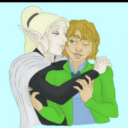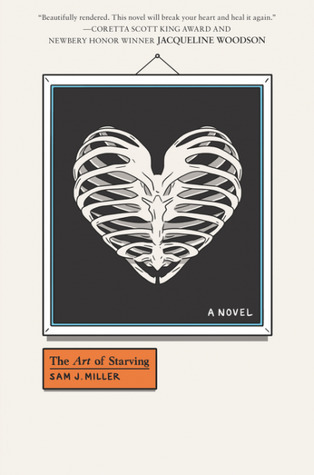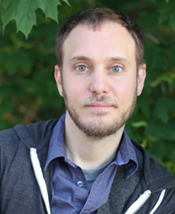
163 posts
Do It For The "I'm Proud Of You" From Everyone Who Loves You.
Do it for the "I'm proud of you" from everyone who loves you.
-
 ineffable-ezra liked this · 3 months ago
ineffable-ezra liked this · 3 months ago -
 t8pew3rmf00l liked this · 3 months ago
t8pew3rmf00l liked this · 3 months ago -
 mybanistersblue liked this · 3 months ago
mybanistersblue liked this · 3 months ago
More Posts from Your-average-teenage-mess
Okay but like- can we agree that if someone made works that you have interacted with, and then turns out to have hurt people in their personal life you haven't interacted with, it's OKAY to feel more strongly about the works, aka the thing that actually effected your life in any way shape or form than about the thing that hasn't?
(if you disagree, just... Go away. Make your own post or something. We're both having a hard enough time without getting into a comment section fight)
Just had a dream where Monty had a proana twitter account. The fuck?
Edit: okay so I'm gonna turn it into a fanfic. Someone help me with planning out the plot? If you're into that, dm/comment that
Okay, so... Currently adapting eial into a musical script fanfic. It has some themes I don't have personal experience with, mainly drugs (cocaine and LSD) and psychosis. Does anyone feel like alpha reading me to make sure I don't mess things up?
Sometimes I feel like will wood's fandom on Tumblr really doesn't get sex drugs and rock and roll.
When Our Stories are Ugly
By Sam J. Miller

When Our Stories are Ugly #ownvoices as a weapon against internalized oppression
When I started to tell my story, I knew that there would be trouble.
Months before my debut novel The Art of Starving came out, people were upset about it. They saw the synopsis and said it romanticized eating disorders. My protagonist, Matt, is a bullied small-town gay boy with an eating disorder (all of which I was) who believes that starving himself awakened latent supernatural abilities.
Eating disorder superpowers? Yeah, I get how that sounds problematic.
But the fact is, that was my experience. I didn’t get superpowers, but my eating disorder made me feel powerful. In control of something. I had absorbed so much hate and fear and toxic masculinity that they were the only weapons I had. And when the demons came - and they came every day - they were what I had to work with.
This is not an uncommon response. Many other survivors I’ve spoken with have shared a similar experience. I get emails all the time, from eating disorder survivors who have read the book and felt validated for the first time.
#ownvoices can get ugly, because our stories can be ugly. It isn’t all pride and power. And the pride and the power, if we’re fortunate enough to arrive at them, come from the ugliness. From what we’ve been through. From our ability to survive.
When we tell the truth about who we are and what we’ve been through, not everyone will like it. Adults may think that young people need to be shielded from these ugly truths, as if hiding from horror will make it disappear. Angie C. Thomas’s brilliant The Hate U Give was just banned in a Texas school district, allegedly for sexual content - when there is literally zero sex in the book - when obviously what they were really upset about was how brilliantly the book brought to life the pain and power of a young Black woman fighting back against police brutality. And young people, even ones from our own communities, might prefer not to explore these issues up close. Especially if they’ve been through something similar. They might find these discussions triggering. I have tons of love and support and respect for eating disorder survivors and others struggling with body image issues, who have to take a step back from this book. I have less respect for the grown-up gatekeepers who think that the way to help young people survive into adulthood is to pretend their pain does not exist.
My protagonist, Matt, is damaged. He’s been traumatized by constant physical and emotional abuse, and the crippling impact of patriarchy. He’s full of hate and anger and shame. He’s also smart and funny and full of love. We’re complicated people - all of us. Like Matt, I had internalized so much toxic masculinity - even as I rejected heteronormativity and embraced my queerness - that my rage took the form of violence. And when I couldn’t turn it on others, I turned it on myself.
Queer youth are especially susceptible to having complicated and painful body image issues, because we often grow up in a space where there is nobody to tell us we’re beautiful, nobody to fall in love with our minds. We’re having crushes on people that are not reciprocated. We’re being made to feel ugly and awkward and unwanted. That can be crippling. Some of these issues can last a long time. And then you grow up and enter a broader gay culture which is just as obsessed with a certain idea of masculinity and a certain type of body.
The power of #ownvoices stories to challenge is massive. With The Art of Starving, I wanted to confront the stigma and shame that so many young queer people are living with. I wanted to tell them how awesome they are. How I was there, once, sunk deep in misery and suicidal ideation and (sometimes) bloodthirsty rage, and eventually came out the other end of it being proud and happy and thanking the gods every day that they made me gay. But if someone had told me that then, I wouldn’t have believed them. I’d have assumed they were like every other adult, a complete idiot who didn’t understand me and therefore had nothing to teach me.
So when I started to tell this story, I knew that I had to honor the darkness that many young people experience. I get that some people won’t want to deal with it.. But it would have been dishonest of me to say “you’re awesome!” without acknowledging the pain folks feel.
If there’s a message to my book, it’s this: You are beautiful, you are magnificent, no matter what you look like. And if you are having complicated feelings about who you are and what you look like and what people think of you, that’s not weird or unheard of. Respect the darkness, but know that you are so much more.

Sam J. Miller is a writer and a community organizer. His debut novel The Art of Starving (YA/SF) was published by HarperCollins in 2017, and will be followed by Blackfish City from Ecco Press in 2018. His stories have been nominated for the Nebula, World Fantasy, and Theodore Sturgeon Awards, and have appeared in over a dozen “year’s best” anthologies. He’s a graduate of the Clarion Science Fiction & Fantasy Writers Workshop, and a winner of the Shirley Jackson Award. He lives in New York City, and at www.samjmiller.com
The Art of Starving is available for purchase.